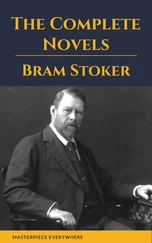At all the garrison centres the troops were kept busy, repairing and fortifying their camps. I gave instructions that all were to be protected by palisades of earth and timber, with square towers at the corners, each strong enough to mount a ballista. Around each camp protecting ditches were dug while traps were prepared in the ground outside each gate. Signal towers, large enough to hold a section of ten men, were erected on the roads linking each camp with the next, each guarded also by a palisade and a ditch. Another line of towers was built along the road between Bingium and Treverorum. In time I hoped to have these manned by auxiliaries so as to relieve the legionaries for more important work.
It was within the area of Moguntiacum, however, that the most important work was done. Between the river wall and the north wall a huge area was cleared, large enough to hold two cohorts and an ala of cavalry, and walled off again from the rest of the town, which was too large to defend with the few men at my command. The huts were cleared from the waterfront and a triple row of ditches dug along the front of the east wall. Each ditch was V shaped, the outer face being at an angle of forty-five degrees. The outer face was lined with timber to prevent filling in, while the bottom of the ditches, fifteen feet deep, were planted with pointed stakes. Between the two outer ditches was a flat space, forty feet wide, and between the middle and inner ditch a space of ten feet. The distance from the fighting platform on the fort wall was ninety feet to the outer edge of the furthest ditch: the length to which our soldiers could throw a spear with lethal accuracy. The main killing area, however, was the forty feet between the two outer ditches. These ditches would break up any attack while there were still men to stand on the walls and hurl missiles.
To the left of the town and just to the east of the Bingium road, at a point opposite the northern end of the southern island I had three small camps built, each to hold a century. The walls were of turf and timber and the whole was protected again by the usual ditches. The old camp, too, behind the town, was put into repair as a barracks for the horses.
While this work was going on cavalry patrols quartered the countryside and the first ship of our fleet, a converted merchant vessel, made a hesitant appearance on the river, armed with ballistae and manned by archers.
I went aboard at Bingium and found an anxious Gallus on the poop, having a heated argument with the Master.
He saluted and said gloomily, “The rowers aren’t up to much. None of them have ever been on the water before.”
The Master said something under his breath.
“We made very slow time coming up. She answers sluggishly to the river.”
The Master tightened his mouth and said nothing.
He took the ship up the Rhenus, hugging the right bank, and it was as Gallus said. We found the greatest difficulty in altering course in mid-stream. She would only turn in an arc that took her nearly from one bank to the other, and ran into trouble the moment she hit the heavy water. Broadside on to the full force of the current she lost way dangerously and drifted badly, so that it was all the rowers could do to get control over her again.
“She is too big for the work you want from her,” said the Master wearily. “I could have told you this at the start but the tribune would not have it so.”
Gallus said, “I am afraid he is right.”
“What is her length?”
“Two hundred and seventy feet.”
“What length should she be for this kind of work?”
The Master hesitated. “One hundred and twenty feet at the outside, but much narrower in the beam. The ballistae you have mounted have upset her balance and the oar banks are not distributed right. Besides, she takes too large a crew. At this rate we shall not find enough oarsmen for the remaining ships.”
Gallus said bitterly, “If we built a smaller boat we should only get one catapult in the bows.”
“That is better than nothing. I must have a ship that can turn in the space of a denarius.”
We went downstream again towards Bingium and found that the only effective way we could turn quickly was to throw out the anchor and, when she had gripped hard, let the current swing her round. The force of the river was tremendous and I was glad to be rowed ashore and to stand on firm ground again.
“Do what you can,” I said. “I shall need ships by the time the harvest is cut.”
News came from the outer world infrequently. There was an early letter from Gallus, telling me that he was not happy about the plans for the new warships submitted by the Master and that there was a shortage of carpenters owing to an outbreak of fever in the city; that the Curator had complained to his superiors at Arelate about the taxes; and that the Bishop had written to the Emperor complaining about me. He added, in a postscript, however, that the money had been made available and that we need not worry about a shortage of unskilled labour, the peasants being quite willing to work for the price of a meal a day for themselves and their families.
Another letter came; this time from Arelate, but it was full of polite evasions, veiled threats, meaningless assurances and hollow sincerities; the whole so wrapped in the stilted language of the civil administration as to rob the contents of any value whatsoever. I took no notice of it.
Messages came in from the various forts. Confluentes reported a willingness from the Frankish settlers to serve as auxiliaries and that their defences were completed, their quota of signal towers finished. Boudobrigo reported hostility among the tribesmen in the district and said that planned accidents had wrecked a half-completed tower, while a three man patrol had been killed in the woods, but by whom, no-one knew. At Bingium all was quiet, but there was considerable movement on the east bank and everything that they did was spied upon. Their commandant added, naively, that he trusted no-one save his own troops, though the new auxiliaries were behaving well. From Borbetomagus the cohort tribune wrote that tribesmen were infiltrating across the river in small boats, and that two attacks had been made on the supply trains that we had sent him. Patrols, landed on the east bank, however, had found the countryside apparently deserted and had returned safely with unsheathed swords.
Walking through the streets one morning my eye was caught by a half-naked man sitting dejectedly in a pen by the slave market. He was dark skinned and wore round his neck a leather thong with a disc on it. His wrists were chained in front of him, which was unusual except in newly made slaves, and he was making patterns in the dust with his fingers. He was about my own age.
“Just a moment,” I said to Barbatio. “I want a word with this man. Find the dealer and have him brought out to me.”
The man was filthy; his one garment stank and I could see the movement of things in his hair. I put my stick under his chin and forced him to look at me. “What is your name?”
“Fredbal,” he muttered sullenly.
“Where did you get that disc on your neck?”
“It is mine.”
“Is it? Give it to me.”
Barbatio cut the thong and I took it between my fingers. It was a lead identity disc such as our soldiers always wore.
“Are you a Frank?”
“Yes.”
“Where did you get this? In a fight with our people, I suppose.”
He shook his head violently. “No. It’s mine.”
“You’re lying.”
He stared at me and the sudden anger vanished, to be replaced by a look of incredible misery. The change was astonishing.
“Wait a minute. Barbatio, look at his ankle.”
The tribune did so.
“Is he branded?”
“Yes, sir.”
Читать дальше












